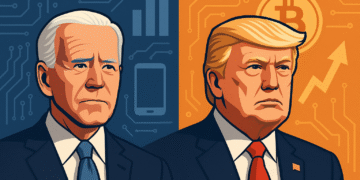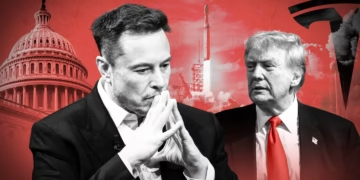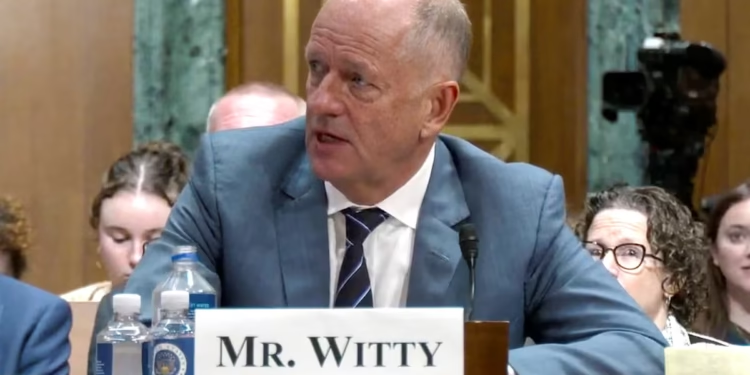UnitedHealth CEO Andrew Witty Steps Down Abruptly: Stock Plunge and Leadership Shakeup Explained
In a stunning development that sent shockwaves through the healthcare industry, UnitedHealth Group announced on May 13 that CEO Andrew Witty has stepped down effective immediately. The abrupt departure comes amid mounting challenges for the healthcare giant, including rising medical costs that prompted the company to suspend its 2025 financial outlook. Former CEO Stephen Hemsley, who previously led the company from 2006 to 2017, will return to the helm as UnitedHealth navigates through one of its most turbulent periods.

Andrew Witty (left) steps down as UnitedHealth CEO, with former chief executive Stephen Hemsley (right) returning to lead the company. (Photo: Business News)
Hemsley Returns: Leadership Continuity Amid Crisis
Stephen Hemsley, 72, is no stranger to UnitedHealth Group’s operations. With a 28-year tenure at the company, including serving as CEO for over a decade (2006-2017), Hemsley brings deep institutional knowledge during this critical transition. He joined UnitedHealth in 1997 as chief operating officer before ascending to the presidency two years later.
The company announced that Witty, 60, is stepping down for “personal reasons” and will remain as a senior adviser to Hemsley. In a statement, Witty expressed gratitude for his time leading the healthcare giant: “Leading the people of UnitedHealth Group has been a tremendous honor as they work every day to improve the health system, and they will continue to inspire me.”
Hemsley acknowledged the challenges ahead in his statement: “I’m deeply disappointed in and apologize for the performance setbacks we have encountered from both external and internal challenges. Many of the issues standing in the way of achieving our goals as well as our opportunities are largely within our control.”
Financial Fallout: Stock Plummets as Forecast Suspended

The market reaction to Witty’s departure was swift and severe. UnitedHealth Group (UNH) shares plunged more than 11% in morning trading following the announcement, erasing billions in market value. The stock decline follows an already difficult period for the company, which saw a 22% single-day drop in April that wiped out nearly $120 billion in market capitalization.
Beyond suspending its 2025 financial guidance, UnitedHealth cited continuing acceleration of medical costs, particularly among new Medicare Advantage beneficiaries, as a key factor in its financial challenges. The company now expects to “return to growth” in 2026, suggesting a prolonged recovery period ahead.
The leadership shakeup and financial uncertainty also dragged down other healthcare stocks, with CVS Health (CVS) dropping more than 4%, Elevance Health (ELV) falling over 6%, Humana (HUM) sliding more than 6%, and Cigna (CI) losing over 2% in morning trading.
Industry-Wide Pressures: Rising Medical Costs Challenge Insurers

UnitedHealth’s struggles reflect broader challenges facing the healthcare insurance industry. The company specifically pointed to higher-than-expected medical costs from new Medicare Advantage members as a significant factor in its financial underperformance. This suggests potential miscalculations in risk assessment and pricing for these plans.
As the nation’s largest health insurer with coverage for more than 49 million Americans, UnitedHealth’s performance serves as a bellwether for the entire sector. The company’s Medicare Advantage business alone covers more than 8 million seniors, making it particularly vulnerable to shifts in healthcare utilization patterns.
Industry analysts note that post-pandemic healthcare utilization has been difficult to predict, with delayed care now resulting in more complex and costly treatments. This trend appears to be particularly pronounced in the Medicare Advantage segment, where UnitedHealth has aggressively expanded in recent years.
Crisis Timeline: A Year of Unprecedented Challenges

Witty’s departure caps an extraordinarily difficult period for UnitedHealth Group. The company has faced a series of major challenges over the past year:
- December 2023: UnitedHealthcare CEO Brian Thompson was fatally shot in New York City, triggering public backlash against health insurers
- February 2024: Massive cyberattack at UnitedHealth’s Change Healthcare unit disrupted healthcare payments nationwide
- April 2024: Company reported its first quarterly earnings miss in over a decade
- April 17, 2024: Stock plunged 22% in a single day, erasing nearly $120 billion in market value
- May 13, 2024: CEO Andrew Witty steps down abruptly; company suspends 2025 financial guidance
During this tumultuous period, Witty faced intense scrutiny, including a Congressional grilling over the Change Healthcare cyberattack. He also had to navigate the emotional aftermath of Thompson’s killing, which sparked widespread criticism of the U.S. healthcare system and insurers in particular.
Looking Ahead: Recovery Roadmap and Market Expectations

Despite the current challenges, UnitedHealth remains a dominant force in the U.S. healthcare economy. The company reported revenue of $109.6 billion and adjusted profit of $6.16 billion in its most recent quarter, underscoring its massive scale and continued profitability despite recent setbacks.
In the investor call following the announcement, Hemsley emphasized that the company remains committed to its “value-based care” initiatives, which create financial incentives for healthcare providers to deliver better care at lower total costs. He also pledged to gain a “more precise level” of understanding regarding the recent performance issues.
The company’s projection of returning to growth in 2026 suggests a multi-year recovery process. This timeline reflects the complexity of addressing the underlying issues, particularly in accurately pricing Medicare Advantage plans and managing medical costs across its massive customer base.
Investor Implications: Navigating Uncertainty

For investors, UnitedHealth’s leadership change and suspended guidance create significant uncertainty. The company’s stock, long considered a stable blue-chip investment, has now experienced multiple sharp declines in 2024, challenging its reputation for reliability.
Market analysts are divided on the long-term implications. Some view Hemsley’s return as a positive development, bringing experienced leadership during a crisis period. Others worry that the suspension of financial guidance signals deeper problems that may take longer to resolve than currently anticipated.
The broader impact on healthcare stocks suggests market concerns about industry-wide challenges, particularly related to Medicare Advantage profitability and medical cost trends. Investors will be closely watching UnitedHealth’s next steps and any updates on its financial projections.
Corporate Governance: Leadership Stability Questions

Witty’s abrupt departure raises questions about corporate governance and succession planning at UnitedHealth. While the company cited “personal reasons” for the CEO change, the timing amid financial challenges has prompted speculation about whether other factors contributed to the decision.
Hemsley’s return represents a return to familiar leadership, but at 72, questions remain about the company’s longer-term succession strategy. As both CEO and board chair, Hemsley now holds significant power in charting the company’s future direction.
The leadership transition comes at a particularly sensitive time for UnitedHealth’s corporate image, following the public backlash after Thompson’s killing and criticism over the company’s handling of the Change Healthcare cyberattack. Hemsley will need to address not only financial performance issues but also reputation management challenges.
Broader Industry Impact: Ripple Effects

As the largest health insurer in the United States, UnitedHealth’s challenges have significant implications for the broader healthcare industry. The company’s struggles with Medicare Advantage costs could signal similar issues for competitors, potentially leading to industry-wide repricing and strategy adjustments.
Healthcare providers may also feel downstream effects if insurers become more aggressive in managing costs. This could accelerate the push toward value-based care models, where providers share financial risk for patient outcomes.
For policymakers, UnitedHealth’s challenges may reignite debates about healthcare reform and the role of private insurers in managing government programs like Medicare Advantage. The company’s outsized influence in the healthcare system makes its financial health a matter of public interest.
The Road Ahead: Challenges and Opportunities

UnitedHealth Group faces a critical period of transition as it works to address financial challenges, restore investor confidence, and chart a path back to growth. With Hemsley’s experienced hand at the helm, the company has an opportunity to leverage its scale and resources to overcome current obstacles.
The healthcare giant’s ability to accurately forecast and manage medical costs, particularly in its Medicare Advantage business, will be crucial to its recovery. Equally important will be rebuilding trust with stakeholders following a tumultuous period marked by tragedy and financial disappointment.
As UnitedHealth navigates these challenges, its actions will not only determine its own future but potentially shape the direction of the U.S. healthcare system for years to come.

















































